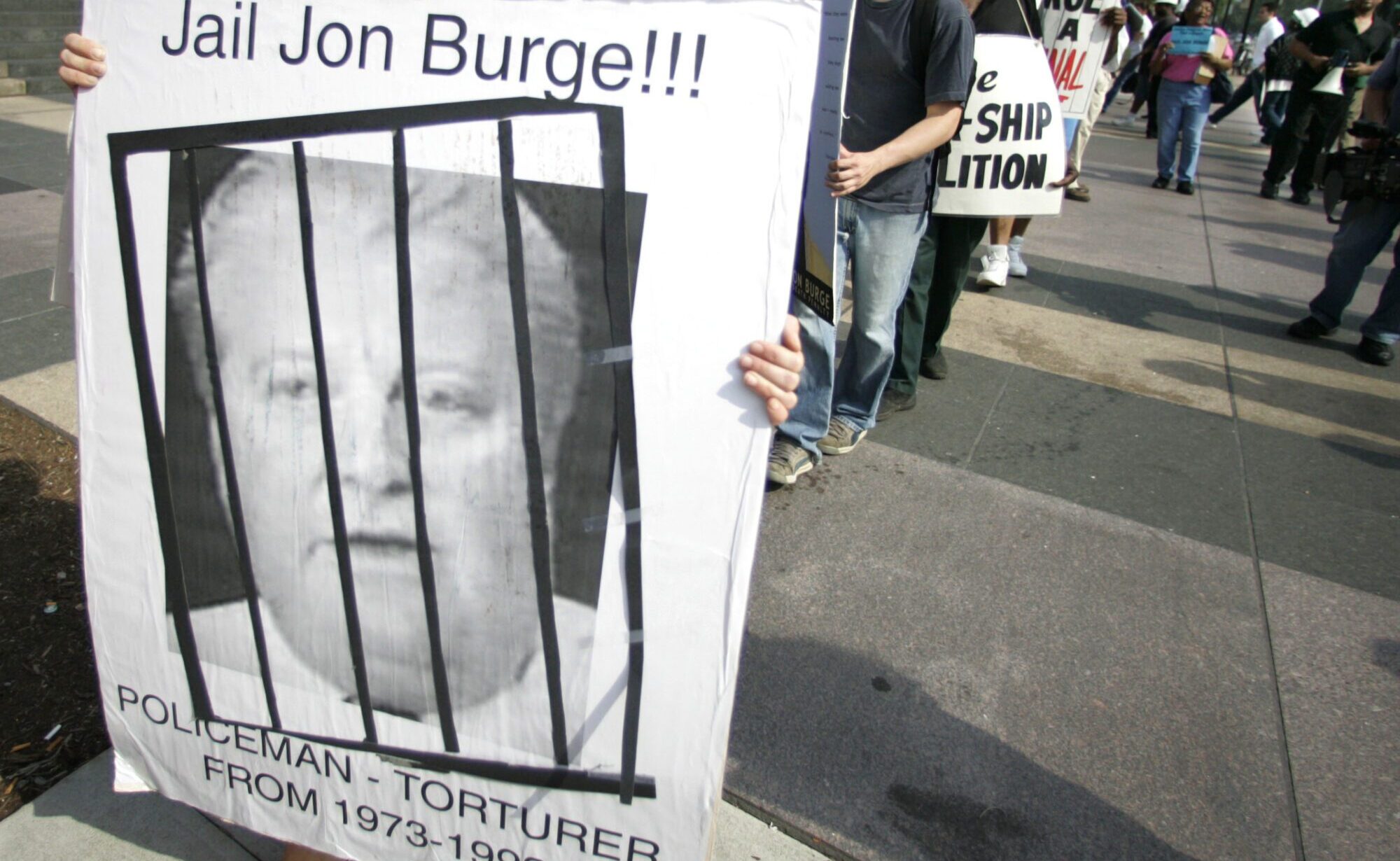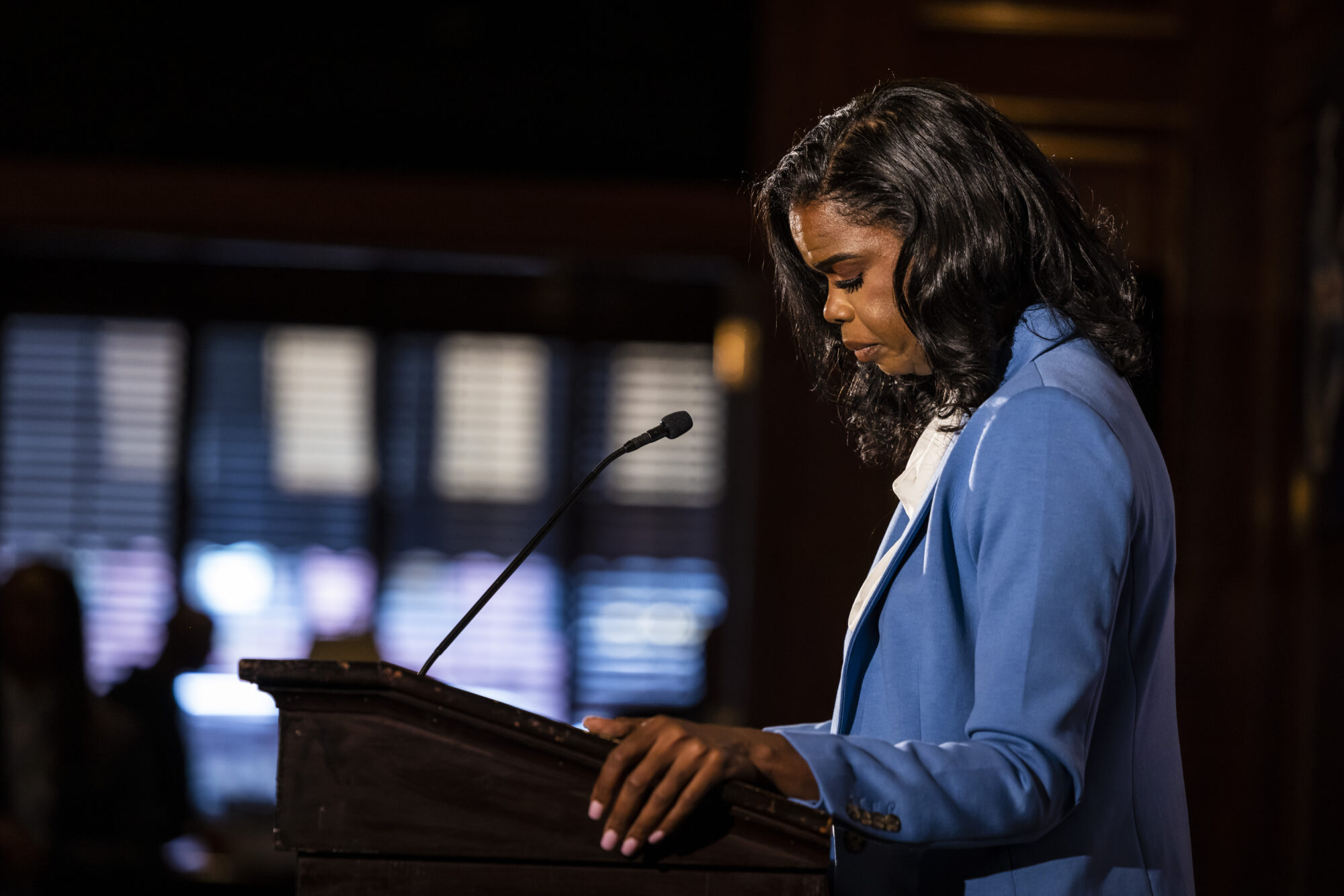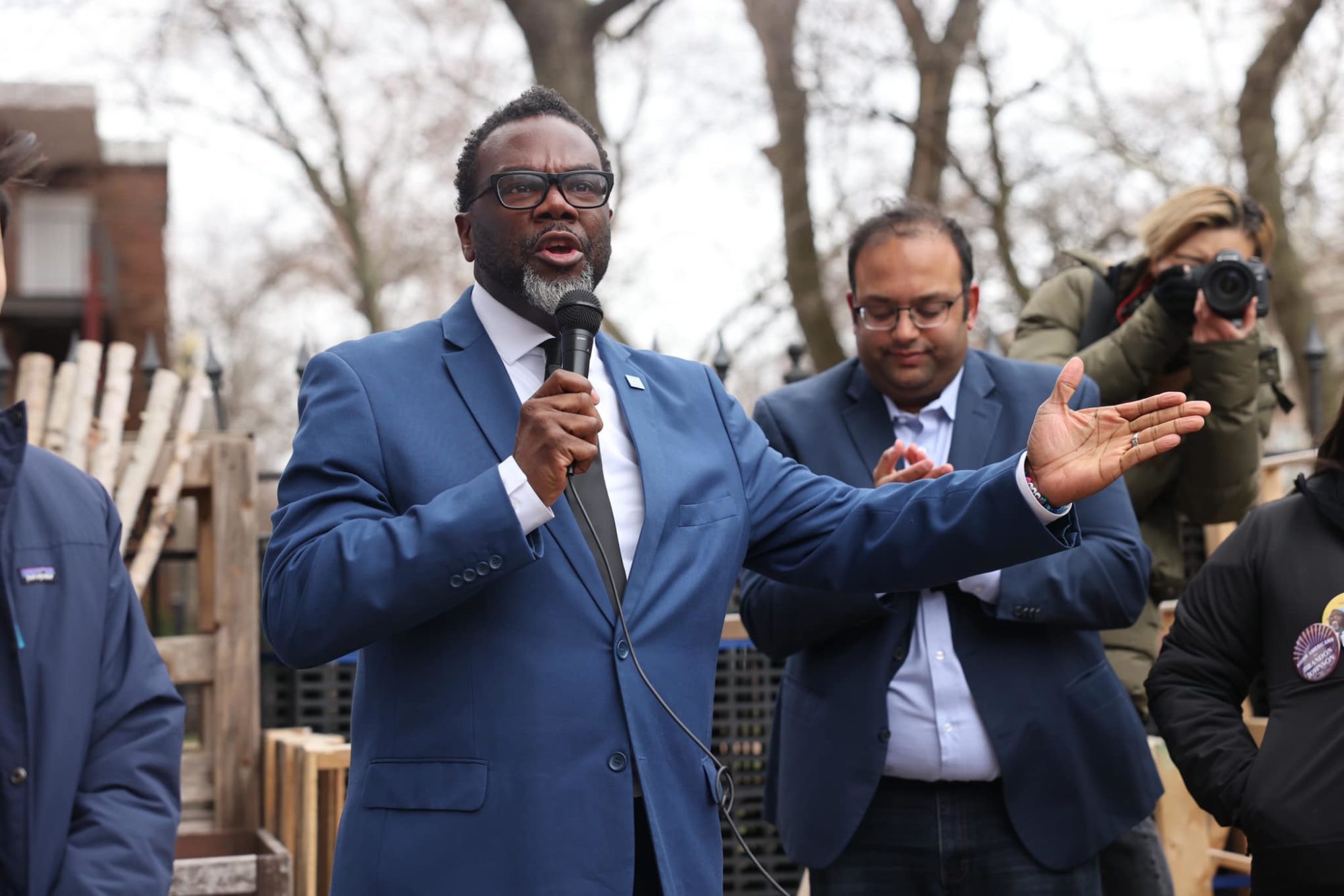O’Neill Burke Squeaks Out Win in Prosecutor Race, Breaking Chicago’s Progressive Streak
The results of the Democratic primary to replace Cook County State’s Attorney Kim Foxx broke along familiar geographic lines, splitting suburb from city and ward from ward.
Pascal Sabino | March 30, 2024
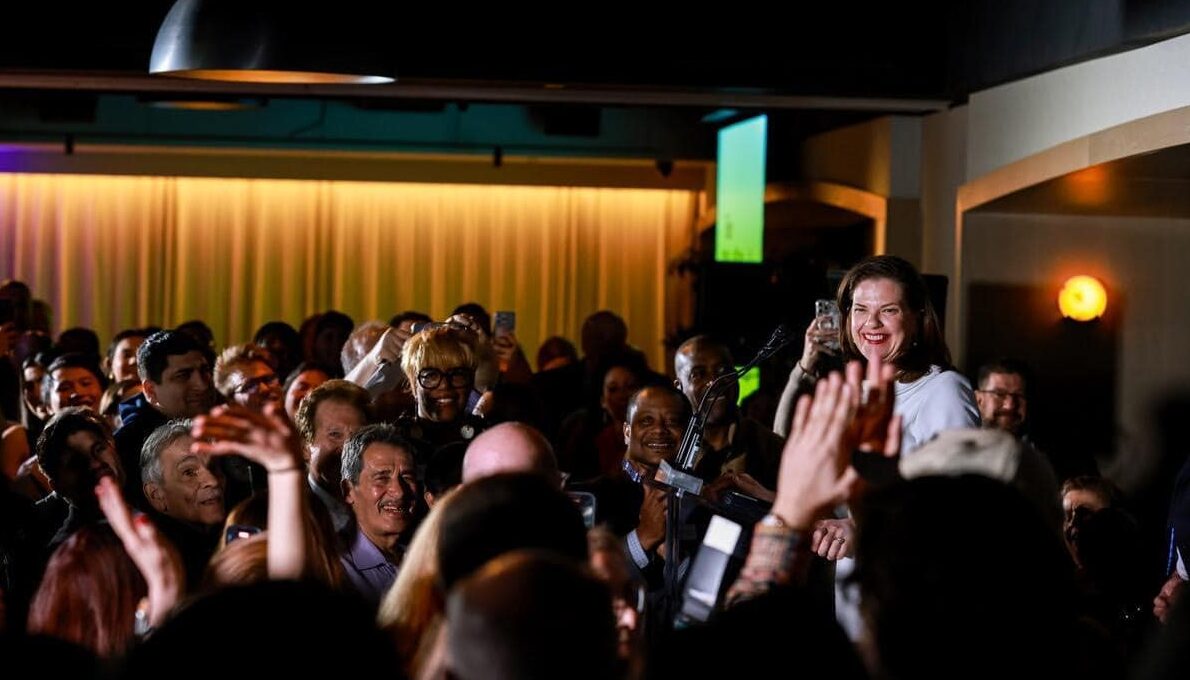

A diverse coalition set on bringing progressive reforms to Chicago carried Kim Foxx to decisive victories in the region’s last two elections for prosecutor. With Foxx retiring, that coalition splintered just enough this month for a candidate who has criticized her and some of her reforms to prevail in the Democratic primary to replace her.
Eileen O’Neill Burke, a former judge, won a remarkably close race over Clayton Harris III, a former prosecutor who defended Foxx’s legacy and received her backing late in the race.
The Associated Press called the race on Friday, ten days after the March 19 election, a period during which local officials counted thousands of mail and provisional ballots. As of publication, with few ballots left to count, O’Neill Burke leads by 1,556 votes, or 0.3 percentage points.
O’Neill Burke showcased her decades of experience in the courtroom during the campaign; thanks to conservative donors, she vastly outspent her opponent with TV ads and mailers to project an image of an unwavering leader capable of delivering justice to dangerous criminals. But even as she ran on a tougher-on-crime message, she also praised some of Foxx’s reforms on restorative justice and expressed support for the state’s recent law abolishing cash bail.
Harris, meanwhile, drew endorsements from influential forces that had previously supported Foxx, such as the Cook County Democratic Party and the Chicago Teachers Union. In a race marked by dramatically low turnout, those alliances proved insufficient, breaking a string of progressive wins in the region that also included Brandon Johnson in the 2023 mayoral race.
In this heavily Democratic county, O’Neill Burke will be strongly favored in November against Republican Bob Fioretti and Libertarian Andrew Charles Kopinski. Cook County has one of the year’s major prosecutor races, with the reelection bids of Los Angeles’ George Gascón and Atlanta’s Fani Willis coming up later this year; March also saw two wins for reformers in Texas.
On Friday evening, O’Neill Burke issued a statement congratulating her opponent for his campaign, saying, “If I’ve learned one thing during the process, it’s that there is so much more that unites us than what divides us.”
She heard the same message “across every neighborhood and every town,” she said: “We want less crime and safer communities, not by locking everyone up, but by turning people around.”
But the primary revealed an electorate that was starkly polarized geographically. The result came down to the city versus its suburbs: Harris won within Chicago and O’Neill Burke carried the rest of Cook County.
O’Neill Burke and Harris also both romped with huge margins in different neighborhoods. Each won several wards of Chicago, and several suburban townships, with more than 70 percent.
These patterns mirror Cook County’s recent prosecutor elections, dating back to 2016.
Foxx won her first race in 2016 on the heels of the killing of Laquan McDonald, a Black teenager shot 16 times by a police officer while he was walking away. State’s Attorney Anita Alvarez was widely blamed alongside the sitting mayor and police superintendent for delaying charges against the officer and withholding footage that disproved the police’s justification narratives.
In ousting Alvarez, Foxx promised enhanced police accountability, less reliance on incarceration, and a more transparent system. Once in office, she rolled out reforms that scaled back the use of cash bail, reduced prison admissions, and expanded diversion programs for drug cases and low-level offenses.
But Foxx also drew heated attacks and condemnation from people attached to more traditional policing methods, with Chicago’s police union and its president John Catanzara emerging as chief antagonists. As Chicago’s issues with gun violence, drugs, and smash-and-grab robberies rose during the pandemic after several years of decline, as they did elsewhere in the nation, Foxx’s critics pressed for more punitive policies. Foxx still secured reelection in 2020 over challengers who questioned her reforms.
Will Tanzman, executive director of the People’s Lobby, a local progressive group, credits her wins in part to an “incredible grassroots movements of people in the streets who really changed the public conversation about what it takes to create safe communities and go beyond tough-on-crime policing and prosecution.”
Three years later, in the spring of 2023, mayoral candidate Paul Vallas also thought that a tough-on-crime backlash would carry him to the mayor’s office with support from the police union but he lost to Johnson, who promised during his campaign to support criminal justice and policing reforms.
Johnson beat Vallas by 4.3 percentage points in April of 2023. That’s nearly identical to the margin by which Harris won Chicago this month.
But O’Neill Burke bested Harris by roughly 7.5 percentage points in the suburban areas of Cook County, enough to carry her to a countywide victory. This matches a common pattern around the nation, with candidates more supportive of reform doing better within cities than surrounding areas, including in Democratic primaries.
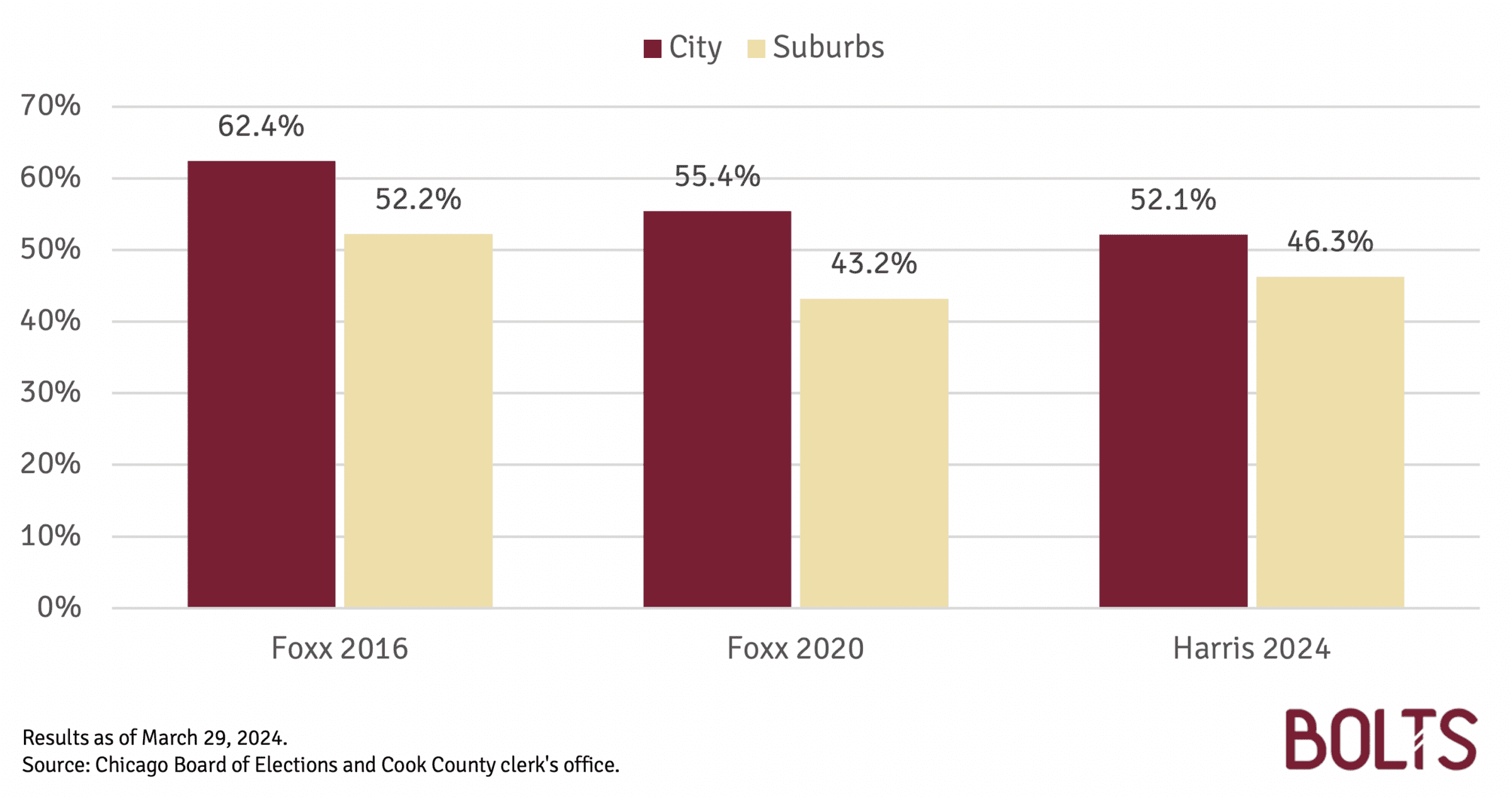

Still, the Chicago-suburbs gap shrank since the last two prosecutor primaries. In 2016, Foxx performed 10 percentage points better in Chicago; four years later, she performed 12 percentage points better. Harris this year did six percentage points better within Chicago than the rest of Cook County.
Within the city, the distribution of votes in the 2024 prosecutor primary was strikingly similar to the 2020 prosecutor primary, and the 2023 mayoral runoff:
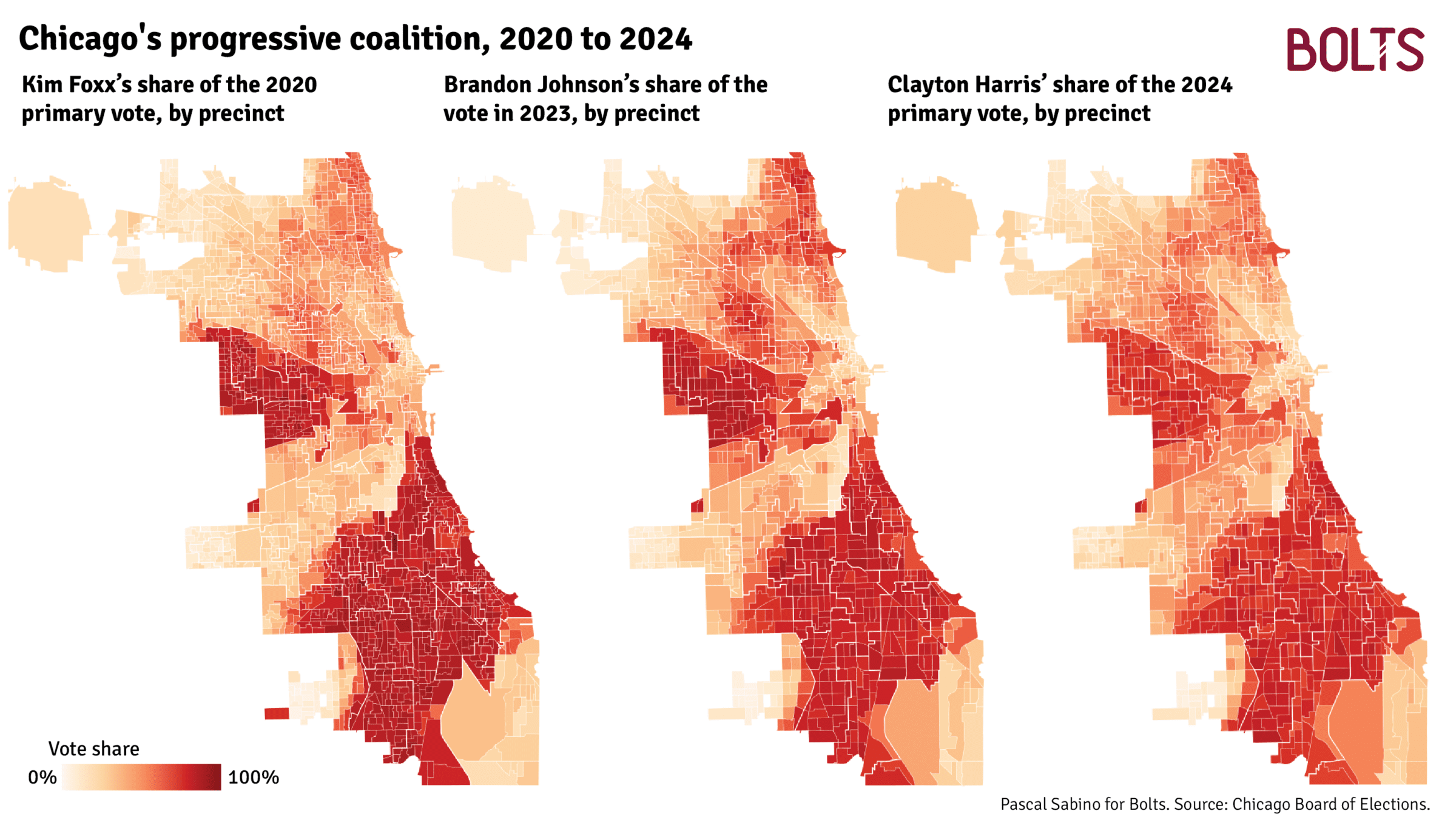

Foxx, Johnson, and Harris, who are all Black, each carried predominantly Black neighborhoods on the South Side, the West Side, as well as the liberal, more white areas on the North Side.
Despite Burke’s stronger showing outside Chicago, Harris also overwhelmingly carried majority-Black south suburbs that previously helped Foxx, such as Rich and Thornton Townships. He also prevailed in some areas like Evanston where residents are predominantly white and liberal.
But Harris’ wins in some parts of the South and West Side neighborhoods were not as forceful as Foxx’s in 2020. Harris did perform better in some majority-Latinx areas including Little Village, Brighton Park and McKinley Park.
O’Neill Burke did very well in more conservative enclaves on the edge of Chicago that are home to high populations of police officers and fire workers, such as Norwood Park, Mount Greenwood and Jefferson Park.
For instance, she received 83 percent of the vote in Chicago’s 41st ward, a police stronghold in the Far Northwest side. Her lead of 5,100 votes just in that ward is roughly four times larger than her countywide victory.
In the runup to the Democratic primary, Catanzara, the police union head, urged police officers to “hold their noses” and participate in the Democratic primary regardless of their party to cast a ballot for O’Neill Burke.
In a video posted to the police union’s social media accounts, Catanzara derided Foxx’s tenure. He framed Burke as the candidate who could “save the city and this county and get back to what everybody seemed to remember being law and order and accountability,” he said.
O’Neill Burke declined Cantazara’s support; her campaign said his statement was “inappropriate” given the nature of the relationship between the police and the prosecutor’s office.
She enjoyed a financial edge in the race thanks to hundreds of thousands in donations from Republican donors. Harris said she was backed by “very extreme right funds.” O’Neill Burke tried to turn the table by attacking him for working with corporations like Lyft with an anti-labor record. One of her ads attacked him as an “an anti-union corporate lobbyist” and “political insider.”
“Even though she’s running on a tough-on-crime platform, she is running as a good government reformer,” Dick Simpson, a professor emeritus at the University of Illinois Chicago who has long studied Cook County elections, told Bolts.
Simpson also thinks O’Neill Burke was able to appeal to the more moderate Democratic voters in the suburbs by balancing criticism of Foxx with support for some of her policies, like boosting restorative justice and alternative programs for cases that touch on drug and mental health.
O’Neill Burke, like Harris, also backed the Pretrial Fairness Act, the landmark law that banned the practice of making defendants pay money in exchange for staying out of jail. The reform, whose implementation began last fall, has drawn heavy fire from Republicans and from state’s attorneys in other parts of the state.
Tanzman commends O’Neill Burke’s decision to nod toward some reforms, including her support for the end of cash bail. “It is meaningful that Burke said she supported the Pretrial Fairness Act and that is going to be how voters expect her to govern,” he said.
“The more conservative candidate decided to incorporate some key elements of the criminal justice reform movement,” he added.
Still, the two candidates also staked different positions that made it clear that Harris was more likely to continue Foxx’s legacy. O’Neill Burke escalated her criticism of Foxx in the campaign’s final stretch, saying people were leaving Chicago out of fear because the legal system isn’t working under her.
Harris pledged to carve his own path, and he was largely not as outspoken in favor of reform as the current prosecutor, but he also said he’d give Foxx an “A” for her accomplishments.
In one example of his cautious two-step, he signaled that he’d be more aggressive than Foxx in seeking pretrial detention for violent crimes and gun cases. Still, O’Neill Burke staked a more punitive stance than him, pledging to petition judges to order pretrial detention in every single case involving a violent crime.
Under the system set up by the Pretrial Fairness Act, courts can still order that someone be kept in jail pretrial on some types of charges, but only if prosecutors ask for it. Some state’s attorneys have taken a hard line in response to the new law, saying they’ll try to keep people behind bars in any case that’s eligible for it, Bolts reported last month.
In another clear policy difference between the candidates, Harris aligned himself with Foxx’s efforts to keep lower-level crimes out of the prison system. He said he would maintain her policy of prosecuting retail theft as a misdemeanor rather than a felony when the value of stolen goods is under $1000; O’Neill Burke said she would lower the threshold to $300 to align with state law.
O’Neill Burke also drew criticism during the campaign for her role in the wrongful conviction of a 10-year old Black child in 1994. In reference to his alleged criminality, she said at the time that the child was part of “a whole new breed,” language for which she has since apologized.
Her campaign told Bolts earlier this month that, if she is elected, she would look to build a strong team in the state’s attorney’s office to investigate possible wrongful convictions.
Though many progressive organizers are wary of Burke’s opposition to some of Foxx’s reforms, they say they’ll try to press the next state’s attorney away from punitive solutions and hold her accountable to her promises on restorative justice and wrongful convictions. “We don’t want to take a step backwards,” said Frank Chapman, field organizer for the Chicago Alliance Against Racist and Political Repression.
“Our demands are not going to change,” he added. “It’s a thorny road we trot. But make no mistake about it, we will continue to fight for justice.”
Sign up and stay up-to-date
Support us
Bolts is a non-profit newsroom that relies on donations, and it takes resources to produce this work. If you appreciate our value, become a monthly donor or make a contribution.


